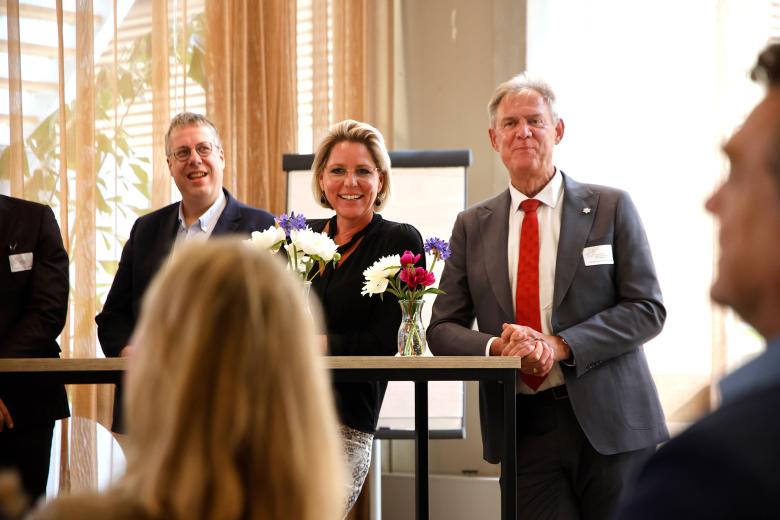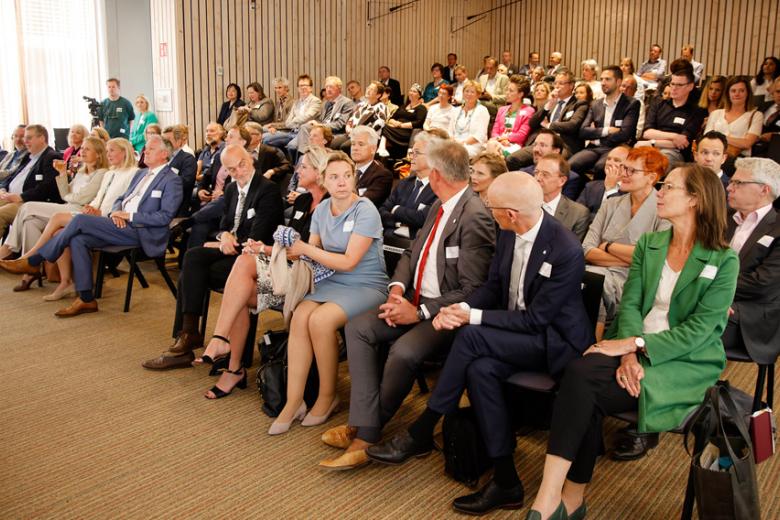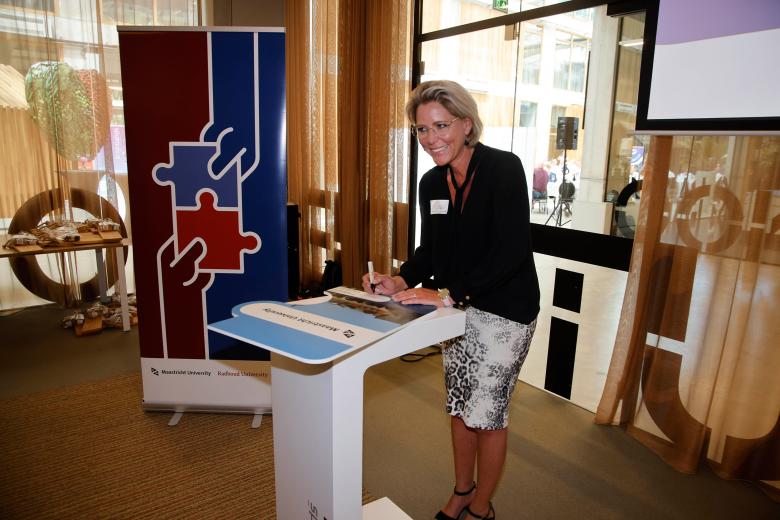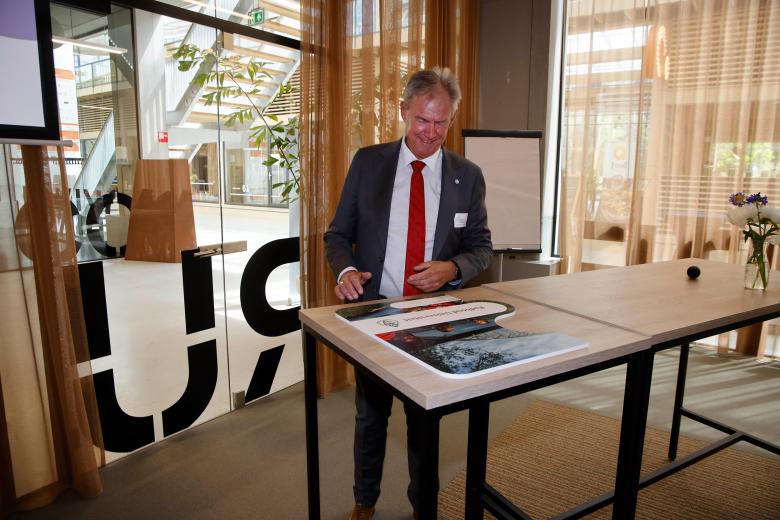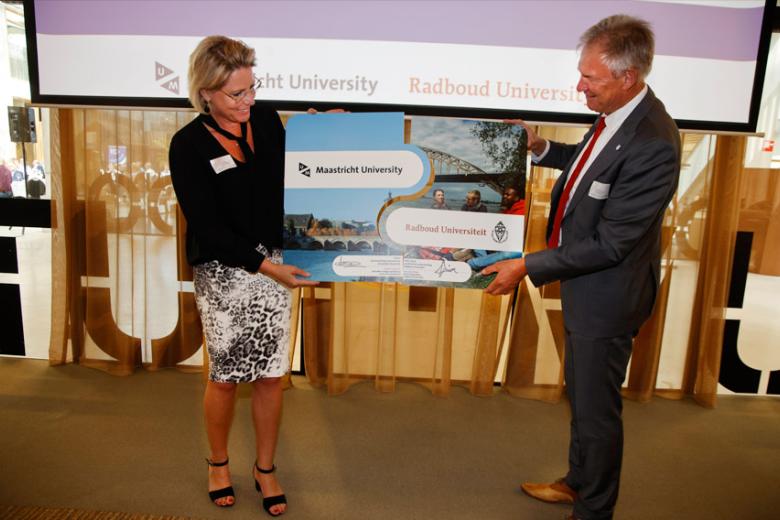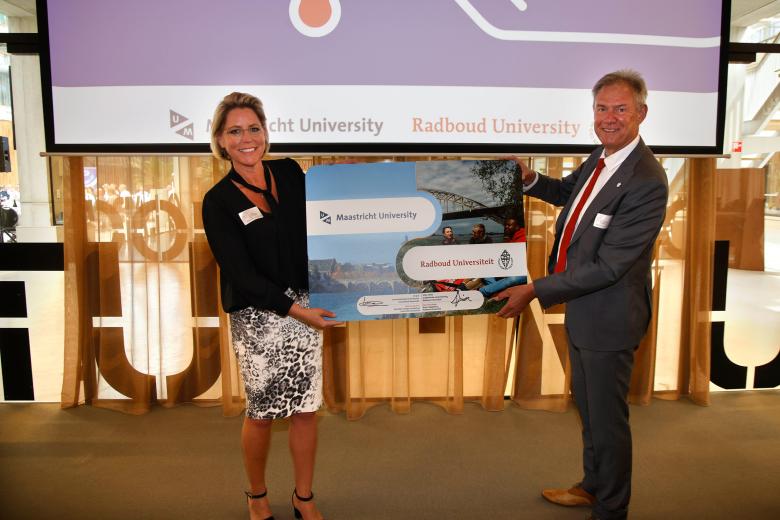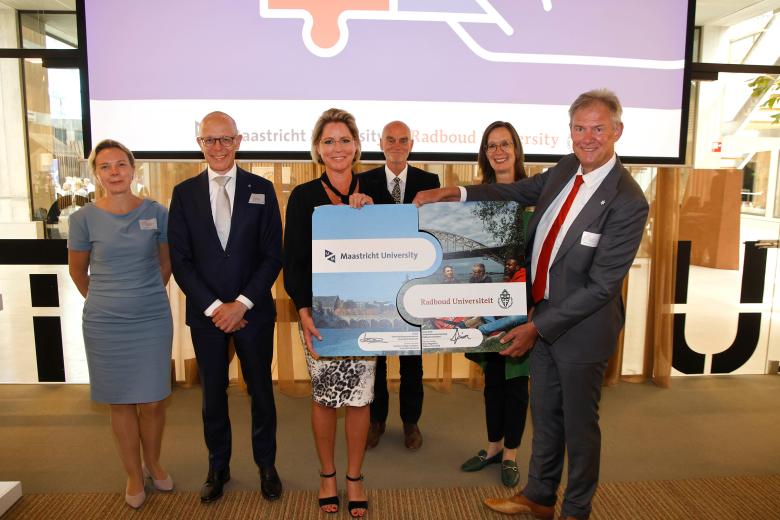Collaboration agreement between Radboud University and Maastricht University
On 14 June 2022, Radboud University in Nijmegen and Maastricht University signed a collaboration agreement for both education and research. The universities want to start offering joint programmes in biotechnology and applied physics, partly on the campus in Venlo. Both universities already have shared development programmes for healthcare professionals. Furthermore, students in Limburg can take part in some of Radboud University’s academic teacher training study programme on location in Maastricht. In the context of Lifelong Development, both universities collaborate in the field of postgraduate education: their first module on sustainable digital heritage started at the beginning of this year. In order to increase their joint impact, the two universities will also intensify their collaboration in the area of research.
Han van Krieken, Rector Magnificus of Radboud University: “Thanks to this collaboration, both universities can be even more meaningful for our society.” Rianne Letschert, president of the Executive Board of Maastricht University: “The two universities complement each other well and are similar at the same time. Together we can respond even better to challenges and needs that arise in our own region, including the EUREGIO.”
Academic Partnership
With the closer collaboration, the universities want to grow into a powerful academic partnership in the south-east of the Netherlands. In a partnership, you travel together, you both do what you are good at, and you have a joint goal. You understand and complement each other, and although you may have a lot in common, you still remain different. This is what makes the collaboration interesting and engaging for both organisations.
Radboud University is a comprehensive university with the humanities and social sciences as well as the exact sciences (including medical). Maastricht University is the most international university in the Netherlands and is known for educational innovations such as problem-based learning.
Both universities are focused on quality education and research with social impact. Many study programmes at Maastricht University are linked to Brightlands, the campuses where entrepreneurs, researchers, and students work together in pioneering research in fields such as new materials, circular chemistry, health, data science, and smart digital services. Radboud University also has an extensive network of partnerships in which knowledge and new technological applications are shared with the business community. The creation of startups and public-private partnerships is actively supported. The two universities are comparable in size and both are located in a border area with a comparable culture and social context.
Challenges healthcare
Both Nijmegen and Maastricht have a university medical centre (Radboud university medical center and Maastricht UMC+) that links international recognition to regional function. Academics from both institutions have worked with each other before, such as in genetics, imaging, and neurosciences. In 2018, both UMCs agreed on an Academic Alliance with the joint mission: “Working together on a healthy life!” Knowledge and infrastructure will be combined, with a focus on prevention and innovation (e-health) and the health of the citizen, not only when they are at hospital. The advantages of scaling up the academic expertise, knowledge, skills, and innovation of both UMCs is combined with the power of their individual networks. This is necessary as healthcare is facing major challenges such as a tight job market, increased demand for healthcare, and challenges like the concentration of healthcare.
At the start of the month, the two UMCs announced that their collaboration would also intensify with the objective of embedding academic healthcare even better in the south and east of the Netherlands and further improving innovative power. Thanks to a comprehensive range of academic healthcare, the five million inhabitants of the combined care areas benefit directly.
Photos: Gerard Verschooten
Also read
-
Workplace education programme for secondary school teachers in Limburg
Maastricht University and Radboud University’s teacher training academies are to intensify their cooperation to address the shortage of secondary school teachers. The joint workplace education programme will make it easier for existing and aspiring teachers in Limburg to obtain a teaching...

